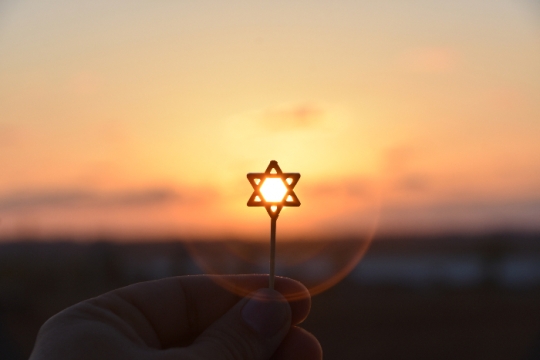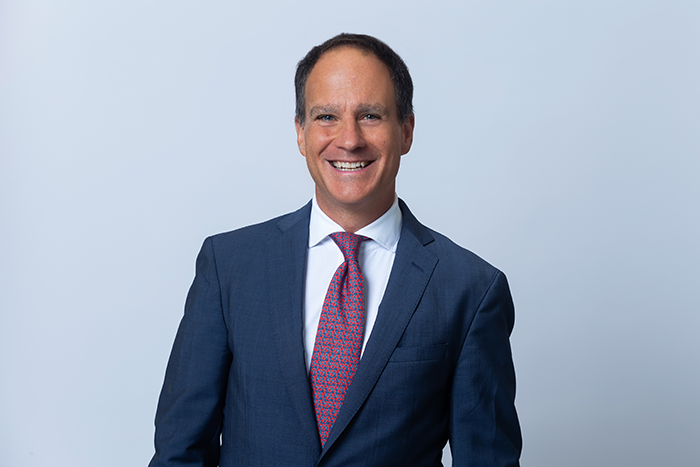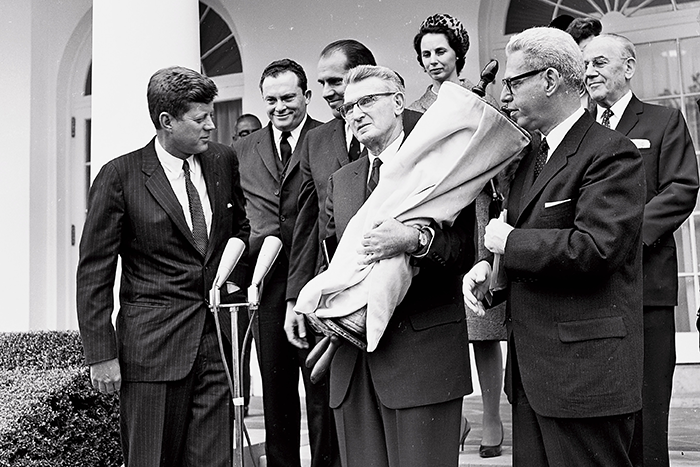
Sixty-two years ago, the founders of the Religious Action Center of Reform Judaism (the RAC) stood in the White House Garden and presented President John F. Kennedy with a historic Torah from the Isaac Mayer Wise Temple in Cincinnati, Ohio. This gift symbolized the lasting contribution of Jews to the moral fabric of American society. President Kennedy went even further, noting that the Torah symbolized, "the happy relations which exist between all religious groups and must continue to exist in this country if we are to be worthy of our heritage."
This auspicious anniversary allows us to look back on milestones like the one above with pride as we renew our inspiration. As we celebrate the Union for Reform Judaism's 150th anniversary, we celebrate all that we have achieved while envisioning what we must do to continue our work toward a world of wholeness, justice, and compassion as we look ahead to the next 150 years.
Much of our success as a Movement is our continued ability to ground ourselves in our text and our traditions, allowing them to inspire our advocacy when we address today’s challenges. So many biblical passages exemplify that justice is a central theme of the Torah, but the words of the prophet Micah most deeply resonate with the RAC’s central mission: "do justice, love mercy, and walk humbly with your God" (Micah 6:8).
The Jewish people understand what we were told at Sinai. Micah tells the people that “God has shown us what is required of us” in the stories and laws of Torah. We understand the essence of the Torah is a call to action — a timeless blueprint for doing justice, loving mercy, and walking humbly with God.
The covenant made with God has been a compass for Jews throughout history, guiding us to speak out and act when we see injustice and inequality. The creation of the RAC was a Jewish response to the discrimination and segregation aimed at People of Color, in particular Black Americans, in the United States. Our liturgy reminds us of the dangers of racial hatred and the brutal realities of oppression and bondage. It is our unique responsibility to lead the fight for change.
By playing an active role in the struggles of the ’50s and ’60s, when a strong Black/Jewish alliance was at the heart of the civil rights movement, we fought to end racial segregation in education, public spaces, and voting. As our work continued, we recognized that we needed a central office and mission to continue. Thus, we created the RAC.
Our work with other civil rights and religious groups helped lead to the historic passage of the Civil Rights Act of 1964 and the Voting Rights Act of 1965, both drafted in the conference room of the RAC's building in Washington, D.C.
Since then, the Reform Movement has continued to avidly support the most far-reaching civil rights laws in the nation's history, addressing persistent discrimination against women, the LGBTQ+ community, People of Color, and persons with disabilities in voting, housing, and employment. Because we know struggles for justice don’t succeed simply because of meetings in conference rooms, we organize congregation by congregation, town by town, and state by state. We build local relationships across all kinds of lines as we share our dream of justice for all.
While we can (and should!) celebrate our success, we are reminded of the famous phrase from Pirkei Avot (Ethics of our Fathers) 2:16; "It is not up to you to finish the task, but you are not free to avoid it." As we look to the future, we continue to be proud of the power we have built and mobilized as we set our agenda for our work in 2023 and beyond. We need you, wherever you live, to engage.
This week, some of us will meet in Washington, D.C. to advocate for Power for Purpose: The Reform Movement’s 2023 Campaign for Climate Justice. This year-long effort is an opportunity to bring the full strength of our Movement – including every one of you - together to address the climate crisis and deliver a clean, healthy, and livable future for all communities, particularly those most impacted by climate change.
Even as we focus on climate justice this year, we continue to work on the important issues the Reform Jewish community faces: voting rights, abortion access, LGBTQ+ equality, gun violence prevention, criminal justice reform, and combatting antisemitism. We will also strengthen our Movement for the future, particularly as we seek nonpartisan opportunities to protect and expand democracy during the 2024 U.S. election cycle.
President Kennedy urged us to be worthy of our heritage by reaching across lines of difference and creating enduring relationships and coalitions. Today, as we commemorate our history, we understand that Torah is, in and of itself, a charge to all who study the text and to all who take the covenant seriously. In the words of the Pittsburgh Platform, we must help "solve . . . the evils of the present organization of society." The RAC will continue to be a resource to all who wish to ground themselves in our Rabbinic traditions while building power for purpose and solidarity.
Related Posts
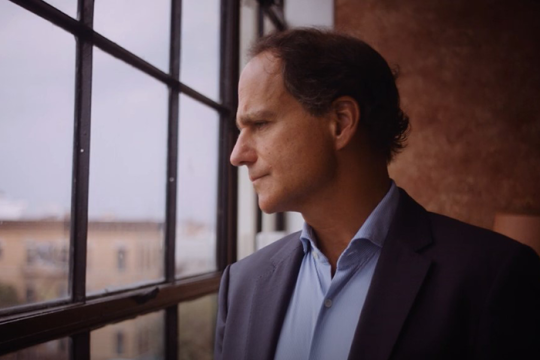
Justice for All People Everywhere: An Interview with Rabbi Jonah Pesner
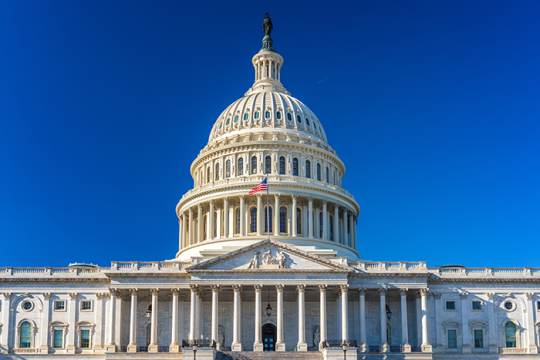
RAC Day of Action: Building Power for Purpose in Washington D.C.
